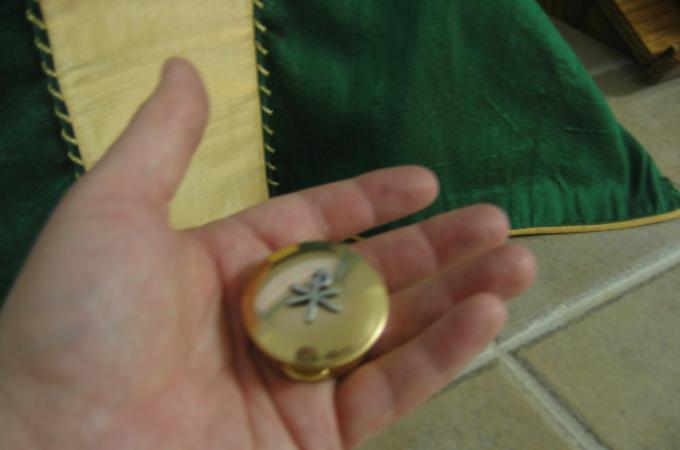Guidelines on gluten-free
Q. At our parish weekend Mass, one child comes regularly to the altar at the same time as the eucharistic ministers and receives Communion separately from the congregation. My understanding is that he has celiac disease and gets a gluten-free host.
But I just realized today that the celebrant gives him Communion using the same hand that has just touched the "regular" hosts. As a person with a food allergy myself (albeit a different one), doesn't that risk a cross-contamination of the host received by the boy? (Lansdale, Pennsylvania)
A. The Mayo Clinic in 2012 estimated that 1.8 million Americans suffer from celiac disease; for them, eating gluten (a protein contained in wheat) can cause serious damage to the intestinal lining. This would mean that, in a Sunday congregation of 400 worshippers, two or three would likely be afflicted.
The U.S. Conference of Catholic Bishops has recognized the danger you point out of cross-contamination. In their pastoral guidelines, they suggest that before Mass begins, a low-gluten host be placed in a pyx on the altar. (A pyx is a small inexpensive metal container, and most parishes would have several of them.)
When the person with gluten intolerance approaches the priest in the Communion line, he or she could simply be handed the pyx containing the consecrated host and then self-communicate.
You will notice that I use the term "low-gluten" rather than "gluten-free." According to the Vatican, hosts must be made of wheat since Christ used wheat bread at the Last Supper.
In the parish from which I just retired, we used low-gluten hosts made by Benedictine nuns in Clyde, Missouri, that contain less than 0.01 percent of gluten and that medical research has deemed safe for most celiac sufferers. Researchers have estimated that most of those afflicted would have to consume 270 such wafers a day to reach a danger point.
For safety's sake, a person with celiac disease is best advised to seek medical advice regarding the consumption of low-gluten hosts; those Catholics unable to consume even low-gluten hosts may receive under the species of wine only, even if the cup is not offered to the rest of the congregation at a particular Mass.
Q. A retired priest says one of the Sunday Masses each week at our parish. During football season, after the opening hymn, he spends a couple of minutes commenting on the football game that our local team played the day before.
This, of course, produces giggles from the congregation, which urges him to continue what I believe borders on sacrilege. (Also, at the conclusion of the liturgy, instead of saying, "The Mass is ended. Go in peace," he says, "The Mass never ends; it must be lived by each of us today.")
His comments at the beginning of Mass have irritated me to the extent that I now leave church until he has finished that part, and then I return to my pew. Your thoughts? (Columbus, Ohio)
A. The first rule, I would think, is that the Mass should be offered with the reverence and dignity that the circumstance warrants: Jesus Christ is made present on the altar, offered to the Lord in sacrifice and then received back as gift to the faithful. This doesn't rule out occasional humor, lighthearted commentary or reference to contemporary events, even football games.
But if the priest you mention regularly spends as much time as you say reviewing the fortunes of the Ohio State Buckeyes -- "a couple of minutes" and then some more -- that seems a bit excessive. (Your use of the word "sacrilege," though, does sound a tad extreme.)
As to his extemporizing at the dismissal rite, why can't he stick to one of the four formulas offered in the Roman Missal -- including "Go in peace, glorifying the Lord by your life," which is what he seems to want to say?
And as regards your leaving church during the opening comments, I wouldn't call that a good idea: At the very least, it can distract other worshippers when they watch you return. If it really bothers you that much, why not do something else: Talk to the priest himself, which would be the most "upfront" thing to do, or speak with your pastor or, as a last resort, simply go to a different Catholic parish?
- Father Kenneth Doyle is a columnist for Catholic News Service



















